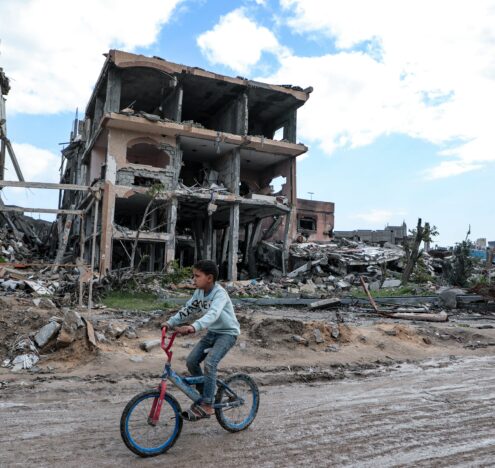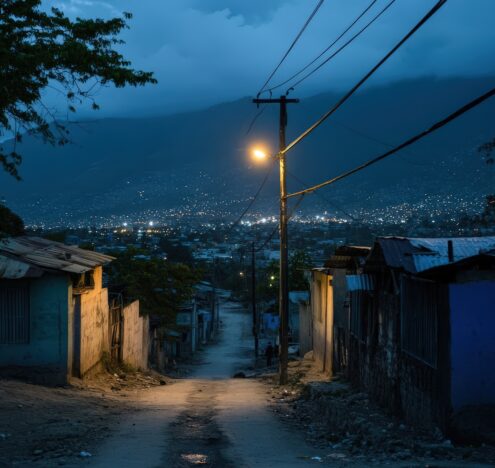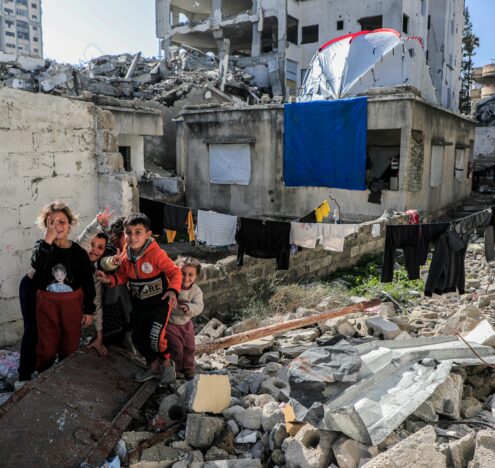This essay is based on the panel discussion “Pipelines and Ceilings: The Gender Gap in Nuclear Policy,” hosted by the Project on Managing the Atom (MTA) at the Harvard Kennedy School Belfer Center on October 29, 2021, featuring Sarah Bidgood of the James Martin Center for Nonproliferation Studies, Heather Hurlburt of the New America Foundation, Sylvia Mishra of the European Leadership Network, Nomsa Ndongwe of the Middlebury Institute of International Studies at Monterey, and Jenny Town of the Stimson Center. You can find the full recording of the panel discussion on the MTA website.
National security policymaking generally, and the nuclear field, in particular, remain predominantly male and predominantly white. Women, especially women of color, are significantly underrepresented. Many academic and policy institutions in the United States have been making earnest efforts to recruit and retain more diverse talent. Yet, even if access to the field for underrepresented groups may have improved over the past few decades, women are still entering spaces which they had no part in shaping — spaces laden with norms, expectations, modes of speech and thought, sets of incentives and penalties, to which they are expected to conform, but which they hardly had any role in constructing. Thus, the relative improvement in representation of women in the nuclear field seldom comes with the requisite impact. The good news: There are things we can and should do to improve diversity in the nuclear field and — most importantly — translate it into meaningful impact on decisions about the world’s most dangerous weapons.
First, we must improve understanding. A score of thought-provoking reports, released over the past few years, broached a frank and often uncomfortable discussion of women’s experiences in navigating male-dominated national security hierarchies. Beyond recounting the continued challenges women face in these spaces due to harassment, sexism, unconscious biases, and unsustainable work-life balance, these contributions also reflect on why diversity is important to the nuclear field in the first place. To this question, there seems to be a strong incentive to provide a consequentialist response: Diverse work environments produce better results and cite a score of studies from the business world to prove the point. There is also a deontological argument that is just as valid as far as I am concerned: It makes for a more just and equitable society.
Women and economically disadvantaged communities are just as affected by nuclear policies and would suffer just as much, if not more, from a nuclear accident or a nuclear war, and therefore they should have a well-represented and meaningful voice in nuclear policymaking. Having said that, calls for greater diversity (for instance, here and here), impassionate and well-argued though they are, are based on little more than aspirations and anecdotal evidence. Let’s fund and conduct serious and focused research of the existing barriers, bottlenecks, opportunities, and transformative impact of diversity on national security policymaking in order to firmly ground the inclusion discourse in evidence.
There are things we can and should do to improve diversity in the nuclear field and — most importantly — translate it into meaningful impact on decisions about the world’s most dangerous weapons.
Second, we must broaden the pipeline. Many organizations in the nuclear field that are sincerely committed to diversity are struggling to attract sufficient numbers of female and minority applicants. Part of the problem is the lingering stereotype that security and nuclear policy is not a woman’s business. For the communities of color, another barrier to inclusion might be the association of things nuclear with government policies, and the resulting reluctance to serve the government that continues to fail them. All of this is in the context of the shrinking of the nuclear threat in public awareness, as compared to the Cold War era. Further, nuclear policy-specific courses and research programs are confined to elite universities, such as Harvard, Stanford, MIT, and a handful of others, so few undergraduates, especially those in predominantly minority schools, get introduced to the topic at all. Finally, undergraduates often have a preconceived idea that a nuclear policy career requires a degree in nuclear physics or security studies. This might have been true in the past — and might have been part of the problem.
Today, it is clear that the nuclear field also needs linguists, sociologists, anthropologists, area specialists, economists, environmental scientists, and more. Indeed, it is exactly this cross-cultural, interdisciplinary, and intersectional expertise that can keep the nuclear field from becoming an insular echo chamber. To paraphrase Albert Einstein, we cannot solve our nuclear problems with the same thinking we used when we created them. Let’s launch outreach programs to generate interest in all things nuclear and to ensure that the next generation of experts and policymakers will be more diverse, in background and in mindset, than the outgoing one.
Third, we must promote mentorships. Women in the nuclear field recognize how important mentorship relationships have been to their careers and advancement. Many of these mentors have been the denizens of the field, who became erstwhile allies and supporters in promoting diversity and inclusion. These mentorship networks should be fostered and expanded. Moreover, there is also a need for peer-to-peer and reverse mentorships to educate the older guard about the perspectives and challenges of early-career women and minorities. Let’s lift as we climb.
Fourth, we must reach beyond the West. Nuclear weapons are a global challenge. And the globe is a big place, much bigger than the Western bubble, which most diversity advocates inhabit. What counts as “minority” and “underrepresented” is highly contingent on the region and country. Hierarchies and power disparities cut across racial, ethnic, caste, gender, and class division in very different ways, depending on where you are in the world. While Western security elites make a convenient if fair target, there’s also a nuclear Russia, a nuclear China, and the Global South, where women and underrepresented groups face many challenges, often more formidable than those in the West. If nuclear patriarchy is a global phenomenon, let’s give it a global treatment.
Fifth, we must reshape the mold. Women enter spaces of national security that have been established and shaped by men for decades. Some nuclear subfields, like nonproliferation, arms control, and disarmament, have proven more amenable to including diverse talent and intellectual contributions. Even there, women often find themselves alone in rooms full of men, interrupted more often than their male colleagues, mistaken for secretaries, or judged on their appearance.
The nuclear policy milieu dealing with deterrence, posture, and technology is by far the most conservative, and its guardians are significantly more averse to perspectives that challenge the nuclear orthodoxy. Women in this subfield are not only fewer in number but also pay a higher “gender tax” — the extra labor exerted to prove themselves by conforming to the established norms, expectations, types of expertise, and technical jargon required to fit into this man-shaped mold. Will the immutable laws governing deterrence, doctrines, force postures, and technology procurements budge with the higher representation of women and minorities at the decisionmaking table? Let’s all work to put at least fifty percent of women at Stratcom and the Pentagon and find out.
Mariana Budjeryn is a research associate at the Harvard Kennedy School Belfer Center, Project on Managing the Atom. She is the author of the forthcoming book Inheriting the Bomb: Soviet Collapse and Nuclear Disarmament of Ukraine.




















